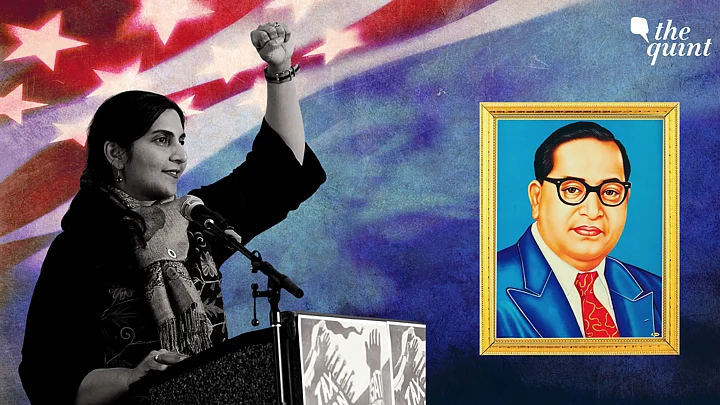Indian American Seattle City Councilmember Kshama Sawant has introduced a "first-in-the-nation" legislation to ban caste-based discrimination, which would put Seattle at the national forefront in recognising caste as a protected status.
“With over 167,000 people from South Asia living in Washington, largely concentrated in the Greater Seattle area, the region must address caste discrimination, and not allow it to remain invisible and unaddressed,” Sawant said.
US-based civil rights group, the Ambedkar International Center, Inc (AIC) , and other rights groups had asked the Seattle City Council to ban caste-based discrimination and worked closely with Sawant, the Coalition of Seattle Indian-Americans (CSAI), Equality Labs, and the Ambedkar Association of North America to help draft the proposed ordinance.
The proposed ordinance would officially add caste to its civil rights laws, prohibit discrimination on the basis of caste and also include protection against discriminatory practices in public spaces, places of employment, housing and contracting, a press release from the AIC said.
It will ban discrimination based on caste in places of public accommodation, such as hotels, public transportation, public restrooms, or retail establishments.
The law will also prohibit housing discrimination based on caste in rental housing leases, property sales, and mortgage loans, the statement by Kshama Sawant said.
Sawant said , “Caste discrimination doesn’t only take place in other countries. It is faced by South Asian American and other immigrant working people in their workplaces, including in the tech sector, in Seattle and in cities around the country.”
The legislation noted that caste discrimination had grown across industries in the United States, including technology, construction, restaurants and the service industry, and in domestic work as well.
The statement added:
“...the caste system was consciously and systematically developed by the ruling classes in South Asia and other parts of the world for thousands of years, in order to exploit the mass of ordinary people by using divide-and-conquer strategy. This meant that those who were forced into the lowest castes were the most cruelly exploited and subjected to untold violence."
The Need To Make Caste a Protected Category
The statement, referring to a lawsuit against tech giant Cisco for alleged caste discrimination against a Dalit Indian American employee by California’s Department of Fair Employment and Housing, noted that companies usually get away with ignoring incidents of caste discrimination since it his not yet recognised by American laws.
Equality Lab's Thenmozhi Sounderarajan stated:
"As a national Dalit civil rights organization that has worked with many institutions around the country to add caste as a protected category, this act is the necessary first step to ensure the rights of all Seattle citizens."
The Cisco case compelled social scientists to probe deeper into caste. The 2020 Indian American Attitudes Survey found that caste was a common thread in Indian Americans’ social circles.
While Hindu advocacy organisations like the widely popular Hindu American Foundation complained of Hinduism being villainised during conversations against caste prejudice in the US, public policy professional Shreya Sarkar earlier wrote for The Quint, “...there are individuals from the lower castes who live with the fear of being 'outed' and ostracized in university campuses and workplaces.”
In January 2022, the California State University system, one of the largest university systems in the US, added caste as a protected category within its non-discrimination policy. Subsequently, several other institutions in the US, including Harvard, Colby College, Brandeis University, UC Davis, and others also added caste bias to their non-discrimination policies.
Sawant said that just as racism is not the result of an “inevitable” racial friction, "caste oppression has also been maintained by the class structure of capitalist society in South Asia and now in the United States."
Anil Wagde of the Ambedkar International Center expressed his excitement for the ordinance sponsored by Sawant and urged the Council’s Democrats to support it.
“The cancer of caste is very much present in the U.S. and the ordinance will provide much-needed teeth for the victims of caste discrimination to confront the perpetrators of caste violence. It will also play a big role in paving the way for future nationwide legislation."Anil Wagde, The Ambedkar International Center
Meanwhile, Maya Kamble, of the Ambedkar Association of North America said, “I am excited that Seattle City Council is willing to take this historic step to recognize caste as a protected status. With growing numbers of South Asians in the USA, the number of caste atrocities are growing, too.”
Who Is Kshama Sawant?
An Indian American politician and economist, Sawant has served on the Seattle City Council since 2014. She is a member of Socialist Alternative, and the first and only member of the party to be elected to public office yet.
A former software engineer, she became an economics instructor in Seattle after she immigrated to the US from India and ran unsuccessfully for the Washington House of Representatives back in 2012 before she won a seat on the Seattle City Council.
Alongside being a teacher, Kshama is an activist, organiser, and socialist, in solidarity with the Committee for a Workers' International. She narrowly survived a recall election in December 2021, the first Seattle saw since 1975, by a thin margin of 310 votes, or 0.76 percent.
(At The Quint, we question everything. Play an active role in shaping our journalism by becoming a member today.)
